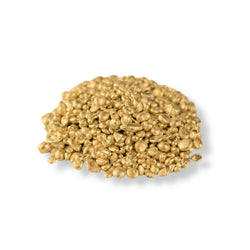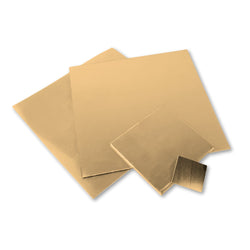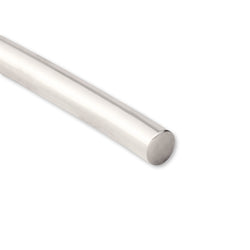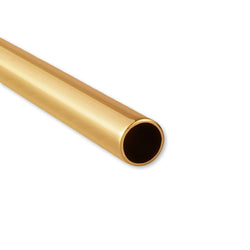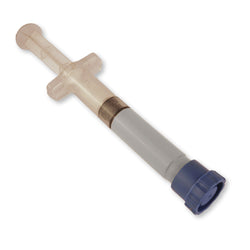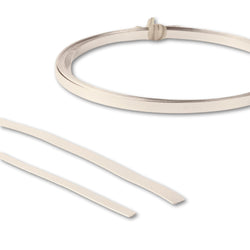Fabricated Metals
Australian Jewellery Supplies
Fabricated metals are the cornerstone of any jewellery maker’s toolkit, offering the essential materials needed to bring intricate designs to life. At Ore Metals, we pride ourselves on providing a comprehensive range of high-quality fabricated metals tailored to meet the diverse needs of jewellers, from beginners to seasoned professionals. Our collection includes casting grain, sheet metal, jewellery wire, tubes, solder, strips, and chains, each available in a variety of precious and base metals. Whether you’re creating bespoke pieces or mass-producing jewellery, our fabricated metals ensure that your creations not only meet your aesthetic goals but also stand the test of time.
Casting Grain: Precision and Purity in Every Piece
Our casting grain is meticulously engineered with professional craftsmanship in mind. Available in a spectrum of precious metals, including 9ct, 14ct, and 18ct yellow, white, and rose gold, as well as fine silver, sterling silver, and exotic metals like platinum and palladium, our casting grain is designed to deliver consistent results. Each batch undergoes rigorous testing to ensure purity and consistency, providing you with the confidence that your casted pieces will exhibit both durability and lustre. Whether you’re creating intricate designs or large-scale pieces, our casting grain provides the perfect foundation for high-quality jewellery.
Sheet Metal: Versatility and Quality for All Your Projects
Our premium sheet metal selection is perfect for a wide range of jewellery-making techniques, including fabrication, forming, engraving, stamping, and finishing. We offer sheet metal in various precious metals such as solid gold and sterling silver, as well as more exotic options like Shibuichi, Shakudo, platinum and palladium. Each sheet is crafted to meet the highest standards of quality, ensuring that your projects have the malleability, strength, and aesthetic appeal you require. Whether you’re crafting intricate patterns or bold designs, our sheet metal provides the flexibility and durability needed to bring your ideas to life.
Jewellery Wire: The Backbone of Your Designs
Jewellery wire is an essential component in creating everything from delicate earrings to sturdy bracelets. At Ore Metals, our jewellery wire is available in a multitude of shapes—including round, square, half-round, rectangular, and twisted—and various gauges to support both intricate designs and structural integrity. Made from high-quality metals such as sterling silver, gold, and copper, our wires are designed to bend, wrap, twist, and shape with ease, allowing you to execute even the most complex designs. Whether you’re creating wire-wrapped pendants, custom clasps, or elaborate beaded designs, our jewellery wire offers the strength and versatility needed to achieve professional results.
Tubes: Dimension and Structure in Jewellery Making
Our tubes are ideal for creating dimensional elements in your jewellery pieces, providing a versatile base for settings, frameworks, or unique geometric accents. Available in alloys such as yellow and white gold, silver, brass, and copper, our tubes offer the perfect combination of durability and aesthetic appeal. Whether you’re crafting ring settings, creating hollow forms, or adding structural components to your designs, our tubes provide the flexibility and strength you need. Each tube is precision-made to ensure uniformity, making them an excellent choice for both simple and complex designs.
Solder: Reliable Joins for Durable Jewellery
Solder is critical in ensuring that your jewellery pieces are securely joined together without compromising on appearance. Our solder range includes options for extra easy, easy, medium, hard and enamelling solder, each with different flow temperatures and compositions to match the metals in your project. Whether you’re working with gold or silver, our solder ensures strong, durable bonds with minimal colour difference, allowing you to create pieces that are not only beautiful but also built to last. Our solder is perfect for everything from intricate filigree work to sturdy structural joins.
Strips: Add Detail and Texture to Your Creations
Our selection of jewellery-making strips includes bezel strips, gallery strips, cloisonne strips and embossed strips, available in a range of metals and patterns. These strips are ideal for adding ornate edges, frames, or textured embellishments to your jewellery pieces. Whether you’re creating detailed bezel settings for gemstones, adding decorative borders to pendants, or experimenting with textured surfaces, our strips provide the versatility and quality you need to enhance your designs. Each strip is crafted to precise standards, ensuring that your finished pieces have a professional and polished look.
Chains: The Perfect Foundation for Any Jewellery Piece
Chains are a fundamental component of many jewellery designs, serving both functional and decorative purposes. Our chain selection includes classic cable chains, elaborate figaro and curb designs, and more, available in ready-made necklaces and bracelets, as well as chain rolls for custom lengths. Crafted from solid sterling silver and 9ct gold, our chains provide a sturdy and stylish foundation for pendants, charms, or can stand alone as a statement piece. Whether you’re creating custom jewellery for clients or adding to your personal collection, our chains offer the quality and variety needed to complement any design.
Frequently Asked Questions
An "alloy" is a combination of metals melted together to enhance or alter their properties for specific uses.
In jewellery making, alloys are created to increase the strength, durability, and colour of precious metals.
For example, pure gold (24ct) is too soft for everyday wear, so it is alloyed with metals like copper and silver to create 18ct gold, which is stronger and suitable for fine jewellery.
Alloys can also affect the melting point, malleability, and appearance of metal, providing jewellers with a variety of materials to suit different design needs.
Fine jewellery is typically crafted from high-quality, precious metals that offer both beauty and resilience.
Prominent among these are 18ct yellow gold and 18ct white gold, both of which combine pure gold with other metals to achieve their distinctive colour and strength.
Platinum is another mainstay in fine jewellery due to its purity, density, and the bright, white sheen that does not fade or tarnish.
These metals are valued for their longevity, hypoallergenic properties, and the way they enhance the brilliance of gemstones.
When creating jewellery, it's advisable to avoid metals that are prone to corrosion, tarnish easily, or can cause allergic reactions.
Metals like nickel and lead are often avoided due to their potential for allergic reactions.
Some alloys containing these metals might be less desirable for those with sensitive skin.
It's essential to use high-quality metals or those coated to prevent direct skin contact for wearable jewellery, ensuring longevity and comfort.
A diverse array of metals are used in jewellery making to cater to different styles, budgets, and design requirements.
Popular choices include silver, known for its affordability and versatility; gold in various carats and colours for its lustrous appeal; platinum for its durability and hypoallergenic properties; and copper and brass for their unique colours and cost-effectiveness.
Each metal brings its own qualities to a piece of jewellery, allowing for a broad spectrum of creative expression.
Solid gold alloys, including 9ct, 14ct, and 18ct in yellow, white, and rose gold, offer jewellers a blend of durability, workability, and aesthetic appeal.
Each carat provides a different level of purity, with higher carats containing more gold and offering a richer colour.
Solid gold alloys also ensure that creations are hypoallergenic and retain value over time, making them ideal for high-quality heirloom pieces.
Casting grain refers to small, granulated pieces of metal that are melted down and used in the casting process to create jewellery. These grains are typically made from precious metals such as gold, silver, platinum, and palladium. In jewellery making, casting grain is melted in a crucible and then poured into moulds to form custom designs, which are then sanded, polished, and finished to create the final piece.
The best metals for casting fine jewellery include 9ct, 14ct, and 18ct gold (in yellow, white, and rose variations), sterling silver, fine silver, platinum, and palladium. These metals offer excellent durability, lustre, and resistance to tarnishing, making them ideal for high-quality, long-lasting jewellery.
Choosing the right casting grain for your project involves considering the type of jewellery you are making, the desired finish, and the metal's properties. For intricate designs, opt for a finer grain that melts evenly and produces a smooth finish. Additionally, consider the alloy and its colour, such as yellow, white, or rose gold, to match the aesthetic of your design.
Yes, you can mix different metals in casting grain to create unique alloys with distinct colours and properties. For example, mixing fine gold with copper produces rose gold, while adding silver or palladium to gold can create white gold. However, it’s essential to understand the melting points and compatibility of the metals to ensure a successful alloy.
The best thickness of sheet metal for stamping jewellery typically ranges from 24 to 20 gauge (0.5mm to 0.8mm). Thicker metal (around 0.8mm / 20 gauge) provides more durability and is less likely to warp, making it ideal for heavier or more substantial pieces. Thinner metal is easier to work with and is suited for detailed designs.
To cut sheet metal for jewellery making without damaging it, use a jeweller's saw with a fine blade or precision metal shears. Ensure the metal is stabilised while cutting, and use smooth, controlled movements. After cutting, use a file to smooth the edges and remove any roughness to prevent injury and improve the final finish.
Fine silver is 99.9% pure silver, making it softer and more malleable, ideal for delicate work and enamelling. Sterling silver, on the other hand, is an alloy consisting of 92.5% silver and 7.5% other metals, usually copper, which makes it stronger and more durable for everyday wear. Sterling silver is more commonly used for jewellery that requires greater strength and resilience.
To shape and form sheet metal for custom jewellery designs, use tools such as mandrels, hammers, and pliers. Annealing the metal (heating it to make it more pliable) helps achieve complex shapes. Once shaped, smooth the edges with files and sandpaper, and use a polishing cloth to give the metal a finished shine.
Jewellery wire is a type of metal wire used in various aspects of jewellery making, including creating loops, wrapping stones, forming chains, and making clasps and findings. Available in different gauges and shapes, jewellery wire is essential for both decorative and structural elements in jewellery design.
Choosing the right gauge of jewellery wire depends on the intended use. For example, 20-22 gauge wire is ideal for making loops and links, while 24-26 gauge wire is best for intricate wrapping and beadwork. Thicker wire, such as 18 gauge, is suitable for structural components like frames and clasps.
Choosing the right gauge of jewellery wire depends on the intended use. For example, 20-22 gauge wire is ideal for making loops and links, while 24-26 gauge wire is best for intricate wrapping and beadwork. Thicker wire, such as 18 gauge, is suitable for structural components like frames and clasps.
Gold jewellery wire offers a luxurious finish, resistance to tarnishing, and high durability, making it ideal for fine jewellery. It also maintains its value over time. Silver wire, while more affordable, is prone to tarnishing but is more affordable and easier to work with due to its softness and flexibility.
Yes, jewellery wire can be used for structural components in jewellery, such as making frames, clasps, and settings. Thicker gauges (18-20) provide the necessary strength for these elements, ensuring durability and stability in the final piece.
To prevent kinks and bends in jewellery wire, work slowly and use the right tools, such as nylon-jaw pliers, which are gentle on the wire. Also, keep the wire straight and avoid twisting it unnecessarily. Annealing the wire before working can also help reduce stiffness and make it more pliable.
The best types of jewellery wire for wire wrapping are soft or half-hard wires in gauges ranging from 24 to 20. Sterling silver, fine silver, and copper wires are popular choices due to their flexibility and ability to hold intricate shapes without breaking
Tube metal is hollow metal tubing used in jewellery making to create bezel settings for stones, form structural components in rings, or serve as decorative elements in necklaces and bracelets. It can also be used to create hinge components, frameworks, incorporate geometric designs.
Selecting the right tube size for your jewellery project depends on the design and the elements you're creating. For example, smaller tubes are ideal for fine details and stone settings, while larger tubes can be used for structural components or bolder, more prominent designs. Consider the diameter and wall thickness based on the desired durability and aesthetic.
Solder is a metal alloy used to join pieces of metal together in jewellery making. It is essential for creating strong, durable bonds between components without compromising the jewellery’s appearance. Solder is available in different types (easy, medium, hard) with varying melting points, allowing jewellers to choose the appropriate type for their project.
To avoid colour differences when soldering different metals, use a solder that closely matches the metals you are working with. For example, use silver solder for silver pieces, yellow gold solder for yellow gold jewellery or rose gold solder for rose gold repairs. Additionally, ensure the metals are clean and free from oxidation before soldering to achieve a seamless joint.
Choosing the right bezel strip for gemstone setting involves selecting the appropriate thickness and height based on the size and shape of the gemstone. Aim to match the bezel width to the stone’s height. Thinner strips are better for smaller, delicate stones, while thicker strips provide more security for larger stones. The bezel strip should also match the metal of the jewellery for a cohesive look.
To add texture and detail using embossed strips, choose strips with patterns or embossing that complement your design. Solder the strips onto your jewellery piece to create borders, frames, or other decorative elements. You can also use texture hammers or embossing tools to create additional patterns on plain strips.
Selecting the right chain for a custom necklace design depends on the style and weight of the necklace. For delicate designs, opt for a fine Cable or Wheat chain. For heavier pendants, a stronger chain like a Curb or Cuban link is ideal. Consider the chain's length, thickness, and metal to ensure it complements the overall design.
Yes, you can solder chains to create custom lengths for jewellery. Use a micro welder or jeweller’s torch, solder, and flux to carefully join the ends of the chain, ensuring a seamless connection. This allows you to tailor the chain length to fit specific designs or customer preferences.
Solid gold chains offer several benefits over gold-plated chains, including greater durability, resistance to tarnishing, and long-term value. While gold-plated chains have a thin layer of gold over a base metal, solid gold chains are made entirely of gold, making them more robust and able to withstand daily wear without losing their lustre.
To choose the right chain thickness for bracelet designs, consider the style and durability required. Thicker chains (like Cuban or Curb chains) are ideal for sturdy, statement bracelets that need to withstand daily wear. For a more delicate or intricate design, opt for a finer chain, such as a Cable or Figaro chain. The thickness of the chain should also complement any charms or decorative elements you plan to add, ensuring the bracelet remains balanced and visually appealing.
You can buy high-quality fabricated metals for jewellery making from specialised jewellery supply stores, both online and in physical locations. Stores like Ore Metals offer a wide range of products, including casting grain, sheet metal, jewellery wire, tubes, solder, strips, and chains in various precious and base metals. Shopping online gives you the advantage of comparing products, reading customer reviews, and accessing a broader selection of materials.

